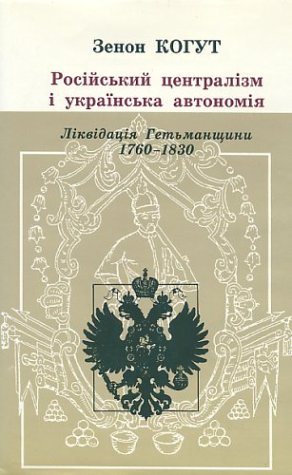Harvard Ukranian Research Institute Monograph
1 total work
Russia’s expansion into a large multinational empire was accompanied by a drive towards centralism and administrative uniformity. Yet, particularly in the Western borderlands, Russia did accommodate itself to the reality of privileged self-governing areas. The Ukrainian Hetmanate, which came under the tsar’s suzerainty in 1654, preserved for over a century its own military, administrative, fiscal, and judicial system. A basic but not well-researched theme of Russian history has been the tension between the centripetal forces favoring uniformity in administration, social structure, and even culture and centrifugal forces demanding the adherence to the rights of such special privileged territories as the Ukrainian Hetmanate, the Baltic areas, the Congress Kingdom, and the Grand Duchy of Finland.
Zenon E. Kohut examines the struggle between Russian centralism and Ukrainian autonomy. He concentrates on the period from the reign of Catherine II, during which Ukrainian institutions were abolished, to the 1830s, when Ukrainian society had been integrated into the imperial system. The study focuses on three principal problems. First, it shows how cameralist thought, Enlightenment ideas, and theories of a well-ordered police state reinforced Russia’s drive towards centralism and uniformity and how these theoretical considerations were applied in the formulation of policy. Second, the work determines the extent to which Ukrainian society both resisted and accommodated itself to imperial integration. Social integration proved to be particularly difficult because of the dissimilarities in social structure between Russia and the Ukraine and because of the autonomist outlook of the Ukrainian gentry. Third, the study concludes that the very success of the integration process resulted in the Russification of the Ukrainian towns and in reducing Ukrainians to a peasant nation. Imperial absorption of the Hetmanate also strengthened the concept of Russia as a unitary state even as the empire was again challenged by the autonomous institutions of its more recent Western acquisitions.
Meticulously researched, lucidly written, and well argued, Kohut’s book not only is a major contribution to Ukrainian studies, but also enlarges on such wide-ranging topics as the formation of the Russian Empire, the origins of Russia’s nationalities problems, and the general conflict between royal absolutism and regional privilege.
